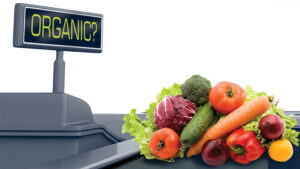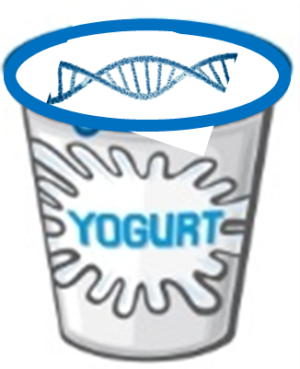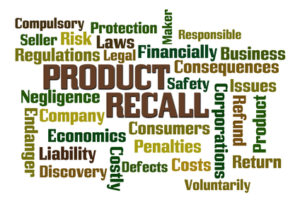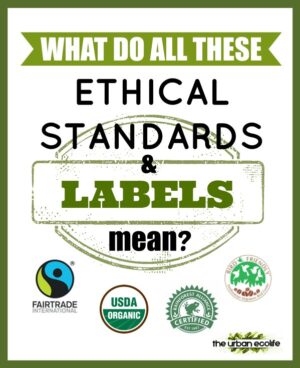
We should be thankful for food safety!
This is the time of years when the food sections of nearly every newspaper and food website will contain articles on food safety and tips to make sure your holidays are disease-free. No matter, the odds are that there will be plenty of day-after stories of people eating under-cooked turkey, raw oysters, or some other ill-prepared or contaminated food.
One of the questions we discussed in our unit on food safety was who exactly is responsible when these foodborne disease outbreaks occur. Is it the consumer who may not have followed the instructions? Or is it the manufacturer, processor, restaurant, or retailer who sold contaminated foods? What about the government who is supposed to keep us safe?
Another issue we discussed was the issue of safety and the level of risk we are willing to assume. Can foods ever be 100% safe? What level of exposure is reasonable?
One thing is certain, if the government was to said no poultry (raw or otherwise) should contain any Salmonella or Campylobacter, none of us would be eating turkey next week. Where do you think the balance is between the benefits and potential burdens of such food safety regulations?

Moody eating, gut microbes, and COVID
It’s not often that as many as three separate Contemporary Issues topics converge into a single study. Yet, researchers as Case Western University in Ohio suggested that COVID-induced depression may have been exacerbated by unhealthy diets high in sugars and fats.
In this review, published in Frontiers in Nutrition, the authors propose that depression and poor eating habits (both common during the pandemic) affect the gut microbiome for the worse. The so-called wrong microbes are enriched when people eat poor diets, and those microbes produce chemicals that act as neurotransmitters that affect the brain.
However, they also contend that foods and lifestyle changes can restore a heathy gut and reduce depression.
Thus, the effect of the diet on mood (topic #1), COVID (topic #2), and food and gut microbiome (topic #3), are all together in one study.
These are connections to which many us can probably relate. What do you think?
Image from: www.discovermagazine.com

Making Meat Out of Thin Air
We have all seen and are beginning to discuss the various plant-based meat and milk alternative foods in the market. Most are based on soybean and other legumes, oat, wheat, pea, or nuts. If you’ve tried these products and find them not quite like the “real thing”, you still must be impressed that they are as close as they are.
As we are discussing in class, the food science and engineering involved in making these products is truly incredible. But now comes a technology that has created a whole new level of awesomeness.
Would you believe making protein from air? Check out this website that claims just that. Evidently, they have isolated a microbe that captures carbon and nitrogen from the air to make carbohydrates, proteins and fats. Grow the microbe in fermenters and voila – you can make meat from air!

George Washington and plant-based diets
Today we began our unit on Plant Meat and Milk. As you most certainly know, plant-based diets have attracted plenty of attention. This has occurred for all sorts of reasons, including health, environment, ethical, and sustainability reasons.
Here is an interesting article from the Conversation that was written by Dr. , a Professor of American History and a George Washington scholar. He mentions that our founders would have been all in favor of this shift from a meat-centric diet to diets based on vegetables. Indeed, during the Revolutionary War, General Washington considered that “The health of the army cannot be preserved without a due portion of vegetable diet. This must be procured whatever may be the expense.”
Moreover, he claims that abstaining from heavy meat diets, so-called “dude foods”, was certainly not a sign of weakness. Indeed, he suggested moderation and disciplined eating were manly attributes.
Now that’s some serious revolutionary thinking.

Organic fraud
While at Whole Foods, I compared the organic apples with the conventional apples. They looked the same and may have tasted the same. Of course, the organics cost about 30% more. But really, other than price, the only thing that distinguished these apples was the display sign that said ‘organic’ and the annoying little sticky things on each apple.
I doubt, indeed I am sure, anyone at Whole Foods, the produce distributor, or the FDA actually tested these organic apples to ensure they were organic. For what would they even be testing? Residual pesticides, perhaps, but what if they were very low? Would that have meant they had been sprayed? What if the orchard down the road had sprayed and the pesticide drifted in the air to the neighboring orchard?
You get the point – it is difficult if not impossible to tell. That’s why the USDA has a strong certification program with farm or plant inspectors, required documentation, etc., to ensure organics are really organic.
Unfortunately, however, there is a lot of fraud, worth millions and millions of dollars. Indeed, the organic premium provides incentive for unscrupulous producers to commit organic fraud. That’s why, when someone is caught, the punishment is severe, including large fines and jail time.
Indeed, some examples are provided here, here, and here.
Image: www.growingproduce.com

World Food Day: Solutions to challenging problem
IFT (Institute of Food Technologists) has been actively involved for many years in world hunger programs such as World Food Day. As they write on their website, “World Food Day is an opportune time to reflect on how our work as a science of food and food innovation community can help realize a world with zero hunger.” I encourage you to visit this link, as well as this more recent link, to explore how IFT is engaged in this issue. I also encourage to you visit this link to learn more about World Food Day 2024.

Organic everything – way beyond apples
As we finished up our discussion on organic foods and clean label, we will discussed reasons why so many consumers are willing to pay a premium for these foods. One of the main reasons is that organic foods are thought by consumers to be healthier than conventional foods. We will reviewed the actual data on this question, but regardless, this perception certainly exists.
It’s interesting that by attaching an “organic” label to a food, it suddenly becomes healthy. Cookies, cake, ice cream, candy bars, potato chips – you name it, there is bound to be an organic version.
From the “you can’t make this up” file, there is even organic tobacco. Indeed, in the tobacco-growing state of Virginia, tobacco has become one of the main organic commodities produced in that state.
Now I know organic versions of wine and beer are available, but as I was writing this I thought what could possibly be next. Organic marijuana edibles, perhaps? Sure enough, they are widely available in California, Colorado, Washington and other states where recreational marijuana is legal. Some contain THC and others CBD (the bioactive chemical components). But be advised, they are not cheap. The organic CBD infused dark chocolate bar shown on the image cost more than $20!

A New Generation of GMOs
One of the persistent GMO questions that continues to be debated is the most basic question of all – what exactly constitutes “genetically modified”?
Certainly, humans have been relying on hybrids for centuries, whether they be grapes, wheat, or other crops. Breeding can also be considered a form of genetic selection. Scientists have also relied on classical mutation to obtain novel plants and microbes.
But GM is different in that, at least for the vast majority of cases, the genetic changes that occur in GM require rather precise molecular manipulation of genes or genomes. Cloning, gene inactivation, and other methods that rely on introduction or modification of genes into an organism are generally considered to be GM. This can actually be regarded as a plus, since the genetic changes that occur by non-GM methods are often not precise and other changes can occur.
Recently, techniques for molecular manipulation have been developed that are even more specific and precise. One technique in particular, called CRISPR, is already being used in yogurt microbes, as noted in this article in the Atlantic, as well as other foods (article in Wired).
You may have heard about CRISPR in the news – after all, two of the scientists involved in the early research, Drs. Emmanuelle Charpentier and Jennifer Doudna, won the 2020 Noble Prize in chemistry.
What are your views on GM foods and the use of CRISPR?

Recent Food Recalls
For reasons we have discussed in class, food recalls are now a very common occurrence. As mentioned during the food allergens unit, most food recalls are for undeclared allergens (e.g., when soy or milk or wheat or other allergenic ingredients) that get mislabeled or inadvertently added to a food. While these can be serious, the recalls that get the most attention are for pathogens in foods. Even then, unless the recall is particularly widespread and causes lots of illnesses or deaths, it seems like the public hardly pays attention.
Although the FDA and USDA websites post recalls, one of the best sites for a daily check on the most current recalls is the Food Safety News website. Interestingly, it is maintained by the Bill Marler law firm (Marler Clark). There you can see that in the last month there have already been 8 recalls, most of which are due to pathogenic organisms like Salmonella.
For some of these, the contamination was detected before anyone got sick, but in other cases, the recall was prompted by reported illnesses. One might argue that the frequency of recalls is too high and that this means our food supply is not safe. On the other hand, it could also be argued that detection and tracing methods are now so sensitive and so fast that public health is actually better off than ever before.
This a glass half-full or half-empty kind of argument. Which side do you take?
Image from http://www.reajetus.com

The appeal of an ethical label
In class, we will discuss ethical labels on foods (organic and other labels), and this is even part of your assignment for the week. The presumption is that these labels make a difference to consumers. In other words, all things being equal (e.g., quality, price), would a consumer choose a product with an ethical label over one without such a label? Moreover, would a consumer pay more for such a product?
Naturally, there are research studies that have asked this exact question. In a 2021 study, researchers in Belgium recruited 179 consumers to evaluate three food products (nuts, juice, and chocolate). Each of these products was presented to panelists in pairs – one was labelled as Fair Trade and the other was conventional. Of course, both were the same Fair Trade product.
A sensory panel was used to determine “liking”. For this study, the scoring was based on a 9-point hedonic scale, where 1 = dislike extremely, and 9 = like extremely.
So, do you think the panelists would like the Fair Trade-labeled product more than conventional?
Yes, not did the Fair Trade labeled products get a higher liking score, but the panelists were also willing to pay more for the chocolate and juice (not so for the nuts).
Interestingly, although the panelist clearly liked the Fair Trade labeled product more compared to conventional, they viewed the sensory attributes about the same. Thus, based on this and other similar studies, the appeal of an ethical label appears to be independent of the actual product attributes. However, defining the basis of that appeal is more complicated.
Image: www.theurbanecolife.com
